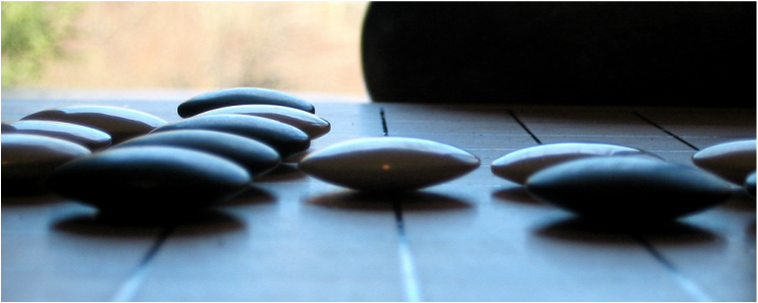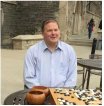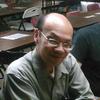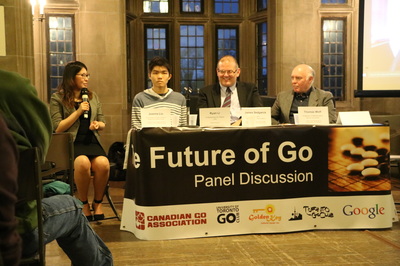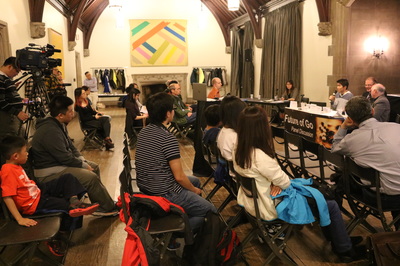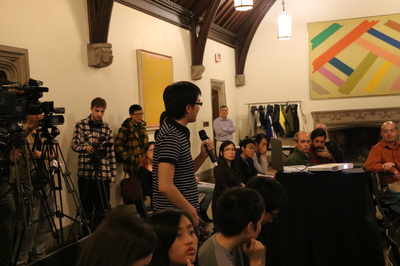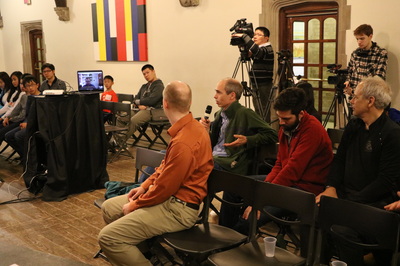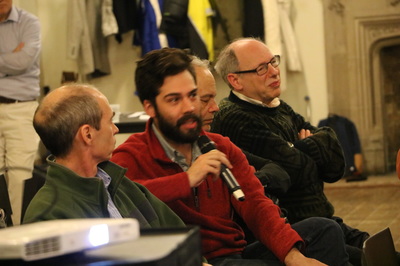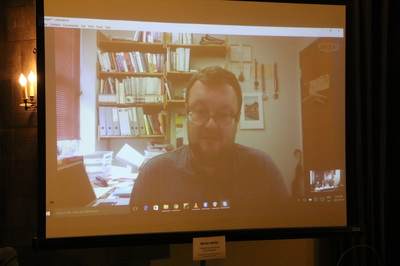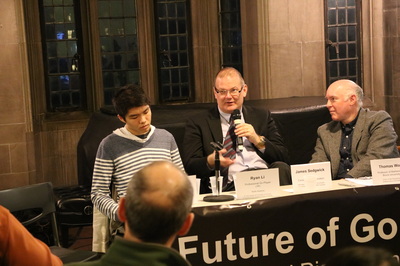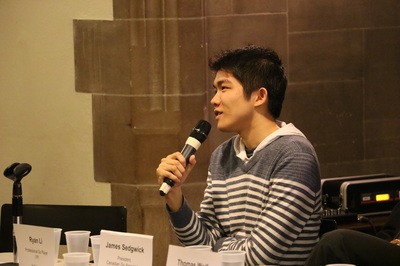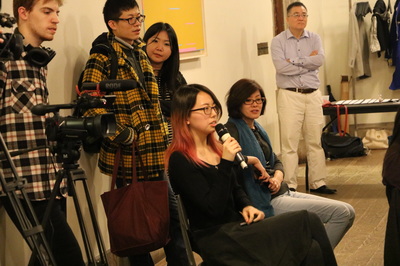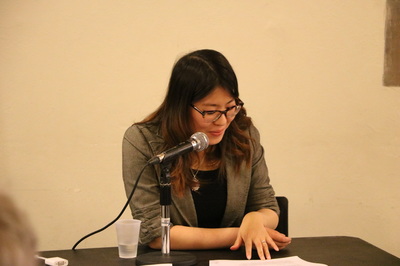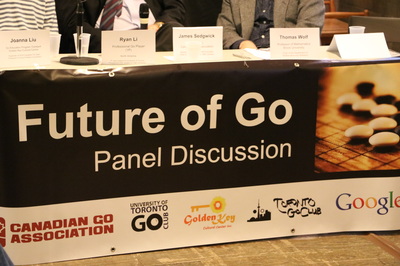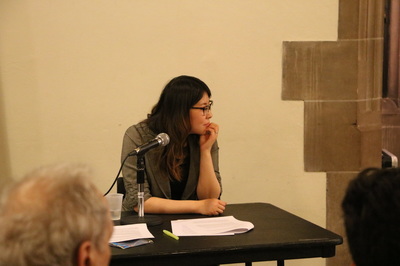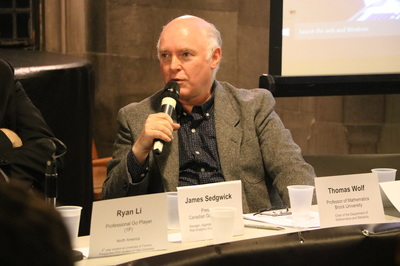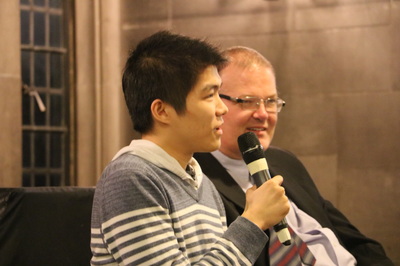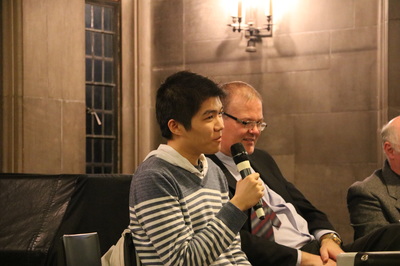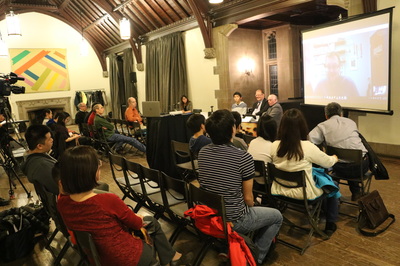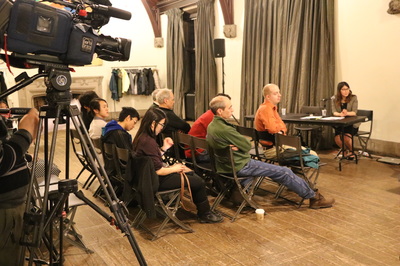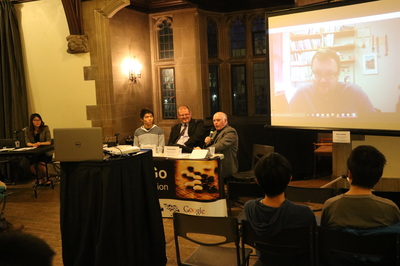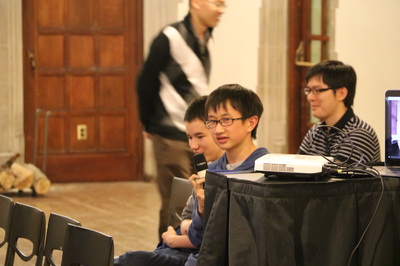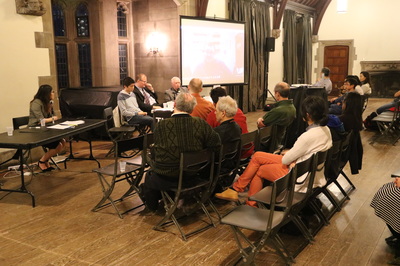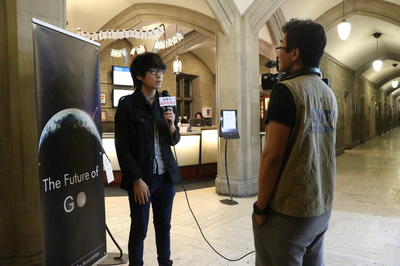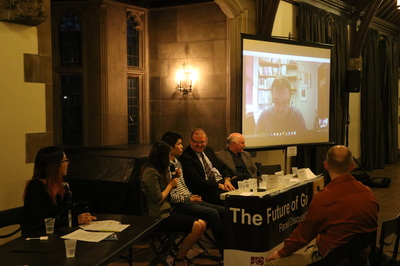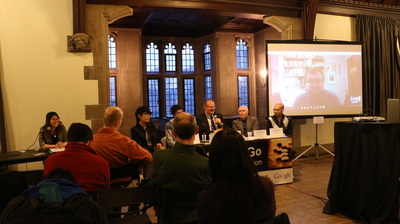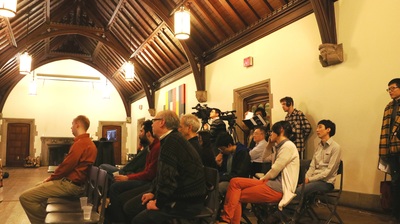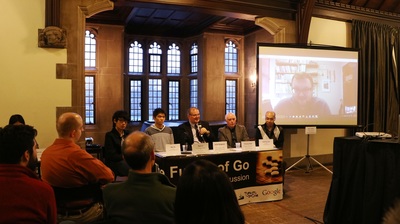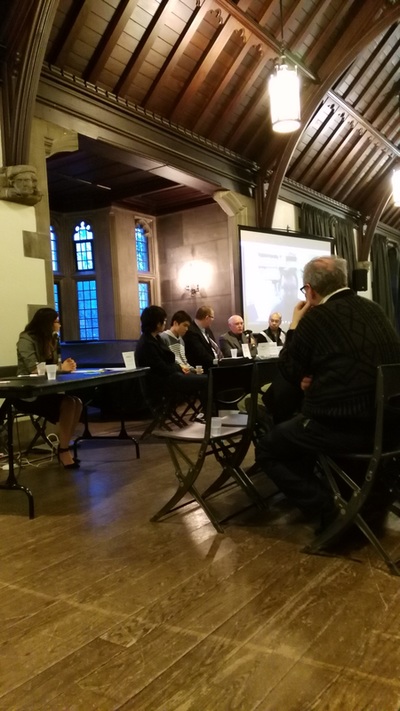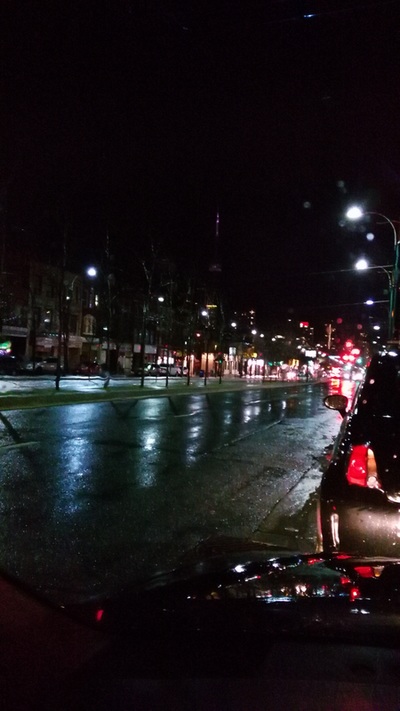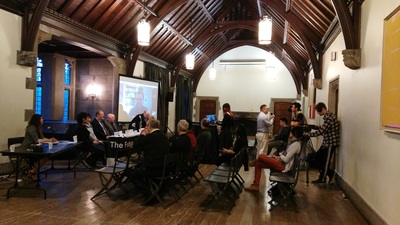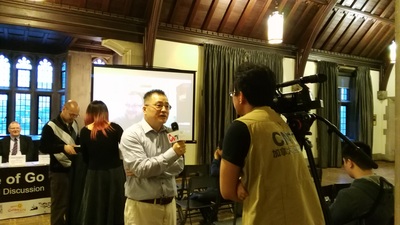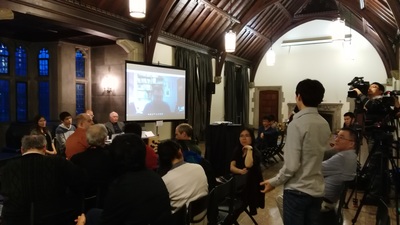Future of Go in Canada Panel Discussion
The Canadian Go Community gathers together to discuss the after-effects of the AlphaGo vs. Lee Sedol Match
Event ScheduleDate: Thursday, March 31, 2016
Location: Hart House Music Room 7 Hart House Circle,Toronto, ON 6:30 p.m. Registration 7:00 p.m. Remarks 7:30 p.m. Panel discussions Topic #1 The after-effects of AlphaGo for the Go community Topic #2 The future of Go education Topic #3 The AI side of AlphaGo—what’s next for humans? 8:30 p.m. Open Q&A Guests
Other detailsThe Canadian Go Association and leaders in the Go community will be hosting a media conference and panel discussion on March 31, 2016. The panel discussion will provide insights into AlphaGo’s impact on the Go community in Canada and exchange views on the future of Go education and AI teaching programs.
The five match challenge began in Seoul on March 9 and ended on March 15 with Google’s AI securing four wins out five matches against the World’s Go Champion, Lee Sedol. Aside from pure strategy and tactics, Go also employs human decision making and intuition, which is one of many reasons why it was hard for computer programs to beat. Millions of people watched the games and were awed by the power of AlphaGo’s learning ability. However, AlphaGo’s challenge is not yet over—the 18-year-old Chinese Go champion Ke Jie is planning to challenge AlphaGo. He holds an 8-2 record against Lee Sedol since late 2015 and is the only player to win two world championships since 2011. DeepMind founder Demis Hassabis has also said about plans to test a version without any of the human training. “Currently, AlphaGo plays with a very ’human’ style. There has been discussion of training AlphaGo without the 100K human game data set. If it can be done, I'm wondering if AlphaGo will continue to play with such a human style, or if we will see many new opening patterns,” said James Sedgwick, President of Canadian Go Association. AlphaGo has definitely popularized the game. “AlphaGo has encouraged more people to learn and play Go, and will surely have more Go players challenge it,” said Johnny Lau, the president of the Toronto Go Club. The Future of Go Panel Discussion aims to discuss the future of Go development and the future of human interactions with AI teaching programs. 3月31日 加拿大围棋未来研讨会在多伦多大学举行 由多年从事围棋教育推广的金钥匙文化中心发起,与加拿大围棋协会共同举办。 应邀前来的主要嘉宾有:加拿大围棋协会主席 James Sedgwick;多年研究智能围棋教授 Dr. Martin Muller;(阿尔伯塔大学- 他的主要领域包括博弈树搜索和规划蒙特卡洛算法,大规模并行搜索和组合博弈论。) 主攻围棋算法教授 Dr Thomas Wolf (Brock 大学 -他的主要程序研究围棋死活题。近年来,他主攻对杀和收官的分析和分类),北美职业棋手Ryan Li,还有多伦多各围棋俱乐部主席及一些棋手。 本次大会讨论主要围绕三个话题展开讨论 1)AlphaGo 给围棋界带来的影响与改变 2)北美围棋与亚洲围棋的不同, 如何改进教育体系 3)智能软件对人类的作用。 北美和亚洲围棋教育体系有什么不同?我们应该期待怎样的改变? Wolf: 当我去中国的时候,我看见有地方政府给幼儿园辅助,普及围棋。所以每一个小孩儿都从幼儿园开始下棋,这种层次的资助是加拿大不可能有的。 Sedgwick: 围棋是文化产物,所以他与地方文化有很大联系。在北美,往往围棋教育被家长们排列到最后学的项目。学期的路很长,很难有小朋友坚持学下去,这也是我们的最大挑战。 Joanna Liu (金钥匙文化中心):我们希望有更完善的系统帮助孩子们在围棋中找到成长的乐趣。我们自2007年以来一直从事围棋教育。2013年,我们设立了少年晋级赛,为十六岁以下学员提供定级赛,为他们提供一个进步的目标。AlphaGo有可能成为我们有力的教学工具。 googl 多伦多 View press release
|
|
The event is free to participate.
|
